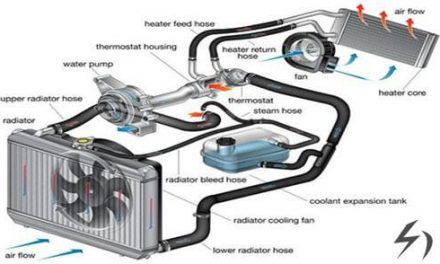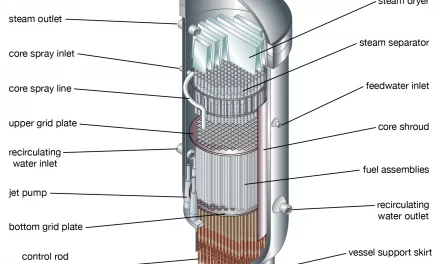Pollution is one of the biggest threats to the environment and to health of all life on Earth. Exposure to contaminated air, water and soil kill more people than obesity, alcohol and traffic accidents; these pollutants kill three times as many people as AIDS, tuberculosis and malaria combined. The greatest problem is air pollution, which causes nearly 1 in 10 premature deaths globally.

Recycling
These facts are worrying, to say the least. Better waste management is crucial for creating a more sustainable and healthy society. Recycling has a very important role in that process, because it both reduces the amount of waste and saves a considerable amount of resources needed for manufacturing new products.
This article describes how pollution can be controlled by recycling materials.
1. An overall reduction in pollution levels
According to research by the University of Central Oklahoma, recycling paper cuts down on air pollution by 73% and water pollution by 35%. Recycling steel reduces 97% of the mining waste produced through the manufacture of virgin resources, and cuts back 86% and 76% on air pollution and water pollution, respectively. Additionally, using recycled glass decreases mining wastes by 80% and air pollution by 20%.

ecosystems
2. It protects ecosystems
Recycling reduces the need to grow, harvest and extract raw materials from the earth for additional products. This, therefore, lessens the harmful disruption and damage done to the natural world. It means fewer forests will be cut down, wild animals will be less harmed or displaced, no more diversion of rivers and as such, less pollution of the soil, water and air. Also if more plastics are recycled, less of them will find their way into the ocean waters, damaging marine life
3. It saves energy

Recycling saves energy
Making products from recycled materials requires less energy as compared to making them using raw materials. The huge difference in energy means less pollution. For instance, producing new aluminum from old products like recycled cans and foil uses 95% less energy than making it from scratch. The figure is 70% with regards to steel. Saving on energy means fewer strains on the power grid, which means less carbon is emitted at the power plant as a result of drawing too much energy
4. It reduces the demand for more raw materials
As already mentioned, recycling reduces the need to grow, harvest and extract raw materials from the earth for additional products. As such, if more is recycled, the raw materials from which these products are extracted will not be touched in quite a while.
This is what it means for a reduction in the demand for more raw materials. When these raw materials, such as forests are hunted, the vulnerable people living next to them also suffer, not forgetting the corresponding river systems.
5. It is better at it than collecting waste
Landfills might be able to accommodate a lot of waste that has been thrown away there. They might also eliminate a lot of waste than a recycling company can when recycling waste. However, recycling means a new product is arrived at from the waste of another.
Landfills, before they help a product decompose, might take a very long time. At the same time, they will allow leaching which will contaminate or pollute bodies of water. It also results in the production of harmful gases like methane, polluting the air. All this is avoided if you decide to recycle.

conserves natural resources
6. It conserves natural resources
The point of avoiding pollution is to preserve natural resources. Recycling is a wonderful tool that will make new products, and at the same time avoid pollution, by conserving natural resources. For instance, recycling paper and wood saves trees and forests.
Recycling plastic means creating less new plastic which is beneficial for the environment, especially because plastics are made from hydrocarbons, which terribly pollute the environment. Recycling metals could also result in less need for the risky, expensive and damaging mining and extraction of new metal ores.
Can Recycling Reduce Air Pollution?
Certainly! Recycling reduces the amount of waste that is sent to incinerators. Incineration produces emissions that contain heavy metals and harmful dioxins that are responsible for acid rain and global warming. Manufacturing with recycled materials save on energy, water and produces less water and air pollution.

Recycling Reduce Air Pollution
By saving energy, recycling reduces the air pollution caused by burning fossil fuels such as coal, oil and natural gas, which greatly contribute to the largest amount of energy generated. Recycling also improves air quality by reducing power demand.
Recycling reduces greenhouse gas emissions equal to taking about 5 million cars off the road, and recycled paper produces 73% less air pollution than when made from raw materials. Recycling, indeed helps the air stay healthy. The Pennsylvania DEP, in 2005, said that recycling reduced greenhouse gases by the equivalent of 9 million tons of carbon dioxide. Such reduction is attributed to the fact that recycling, reduces the need to burn fossil fuels, like gasoline, coal and diesel.
Can Recycling Reduce Water Pollution?
Yes! Recycling can help reduce water pollution. The concept behind recycling is to make new products out of the old and recycled content. In doing so, the process uses less water than making the same products from scratch. By reducing the number of products that need to be made from scratch, you can help reduce the amount of industrial water pollution that’s created.

Water Pollution
Also, according to National Geographic, a whopping 91% of plastic is not recycled, despite plastic being the greatest enemy of ocean water. Recycling helps keep these plastics out of the ocean and reduces the amount of ‘new’ plastic in circulation.
Electronic waste, which is some of the fastest-growing types of waste, contains mercury, lead and other toxins that could leak out of landfills and into local water sources. Landfills are known to release some of these toxins and much more into groundwater, and nearby bodies of water such as rivers.
They, therefore, poison the water and could infect a lot more people downstream. Recycling will ensure such leaks are fixed and water is safe from contamination. There are a myriad of companies who are helping with recycling e-waste or electronic waste, helping save the environment
Can Recycling Reduce Land Pollution?

Land Pollution
Obviously, yes! The term ‘landfills’ means something is filled on land, and in this case, waste. The Stanford Recycling Centre explains that each American throws away 7.5 lbs of garbage, the majority of which ends up in landfills, taking up a lot of land. Landfills are supposed to hold waste for as long as possible, but at the same time, such waste pollutes the land.
To reduce solid waste pollution on land, recycling does a lot to help. By recycling, you will be reducing the amounts of waste going into landfills, as well as the environment in general. The US EPA estimates that when a company recycles 1 ton of paper, they save an equivalent of 17 trees
Can Recycling Reduce Plastic Pollution?
Of course, recycling reduces plastic pollution. As already mentioned, recycling helps keep plastics out of the oceans and reduces the amounts of ‘new’ plastic in circulation. Plastic is the primary source of waste in oceans and recycling will mean fewer plastics in these bodies of water and therefore fewer effects on marine life.

Recycling and Plastic Pollution
Only less than 14% of plastic packaging is recycled and more has to be done. Choose to put plastic packaging into the recycle bin, and not in the trash. Where possible, avoid them as much as possible, and if that is not possible, reuse them as much as possible, before throwing them into the recycling bin.
Plastics take a ridiculously long time to decompose and therefore, dumping them into landfills, condemns that piece of land to centuries of plastic waste that will never decompose. Recycling would therefore decrease plastic pollution or trash and therefore save the environment some years of decomposition. Plastic bags have a way of finding themselves into marine animals such as fish and turtles. Recycling them will mean more of these beings will survive, reproduce, and the environment will be better.
Reference
https://www.conserve-energy-future.com/how-recycling-help-reduce-pollution.php
https://simplyecostore.com/blogs/news/how-does-recycling-help-to-reduce-pollution










